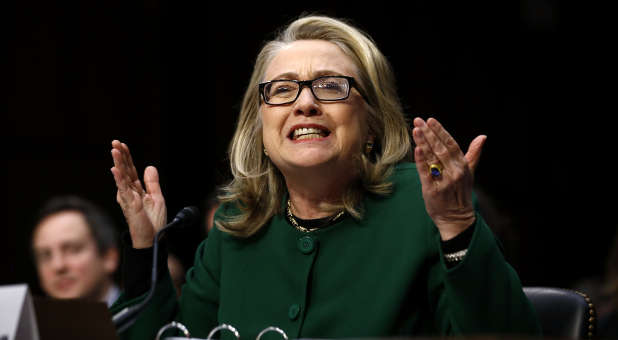Here’s What Hillary Wants to Do to Wall Street—And Your Money
Top advisers to Hillary Clinton on Monday argued in a call with reporters that her plan to rein in Wall Street is more effective than a Depression-era law favored by her rivals to break up so-called too big to fail banks.
The move to outline the details of Clinton’s plan came just days after the second Democratic presidential debate in Iowa, where Wall Street regulation led to one of the evening’s most contentious exchanges.
The move by the campaign to explain the nuances of Clinton’s plan more fully underscored the difficulty the Democratic front-runner may have selling her risk-based approach to voters when her competitors’ familiar break-up-the-banks, too-big-to-fail rhetoric has become a rallying cry of the progressive wing of the party.
“She thinks there are better solutions, that her plan gives the regulators the ability to downsize banks and other financial institutions,” said Gary Gensler, a former chairman of the Commodity Futures Trading Commission under President Barack Obama who is one architect of Clinton’s plan.
At Saturday’s debate, Clinton, Vermont Senator Bernie Sanders and former Maryland Governor Martin O’Malley clashed over the potential reinstatement of Glass-Steagall, a 1933 law that separated commercial and investment banking services. It was repealed during President Bill Clinton’s administration.
Hillary Clinton now favors regulating financial institutions—not just banks—by risk levels, saying different kinds of financial institutions exist now than when Glass-Steagall was law.
At the debate, Sanders said Clinton is on the “wrong side” of reinstating Glass-Steagall and breaking up too-big banks.
“Bernie’s right. We need to reinstate a modern version of Glass-Steagall and we should have done it already,” O’Malley said.
But Clinton disagreed.
“I looked very carefully at your proposal reinstating Glass-Steagall. It is a part of what very well could help but it is nowhere near enough,” Clinton told Sanders.
Former Massachusetts Representative Barney Frank, who sponsored a large reform package in the wake of the financial crisis, was also on Monday’s call.
“Nothing in Glass-Steagall would have the retarded the disasters of Lehman and AIG,” he said.
Lehman Brothers was an investment bank that did not have commercial banking business; American International Group is an insurance company. Both contributed significantly to the financial crisis.
© Thomson Reuters. All Rights Reserved.















































